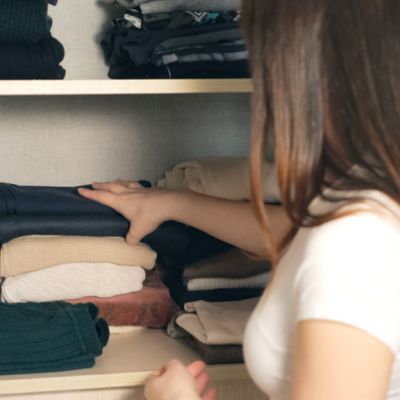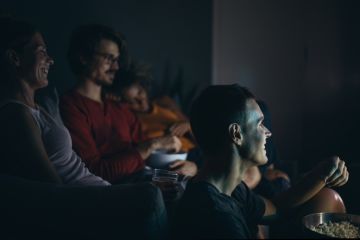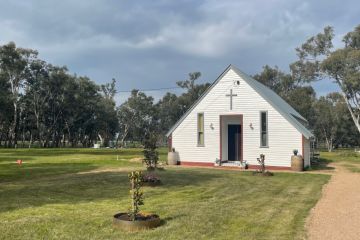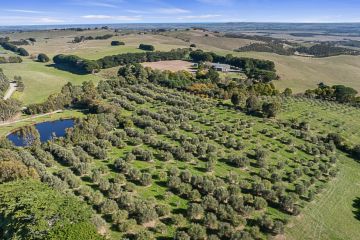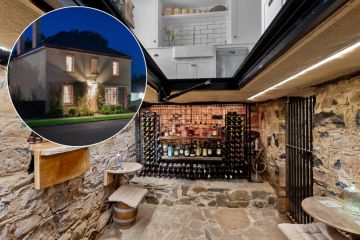I never thought I'd value my porch so much, until coronavirus changed things

We have a two-person seat on our front porch. It’s an old thing with a thin timber-slatted seat and ornate wrought-iron ends.
My husband got it from a junk shop somewhere, stripped it back and repainted it in a high-gloss black. It’s a good-looking seat, but we never actually sat on it. Not until a certain virus came along.
The seat is a nightly ritual now. Maybe it’s “the frantic desire for life that thrives in the heart of every great calamity,” as Albert Camus wrote in The Plague.
Perhaps, as the muse Paul McCartney said, we’re just trying to “take a sad song and make it better”.
The seat is nicely positioned to offer a sunset, toasted with a glass of what my daughter calls “pinot greeno”, along with a steady stream of passers-by to say hello to.
Maybe, if we’re lucky, it will even afford a treasured chat with a beloved neighbour from a medically prudent distance.
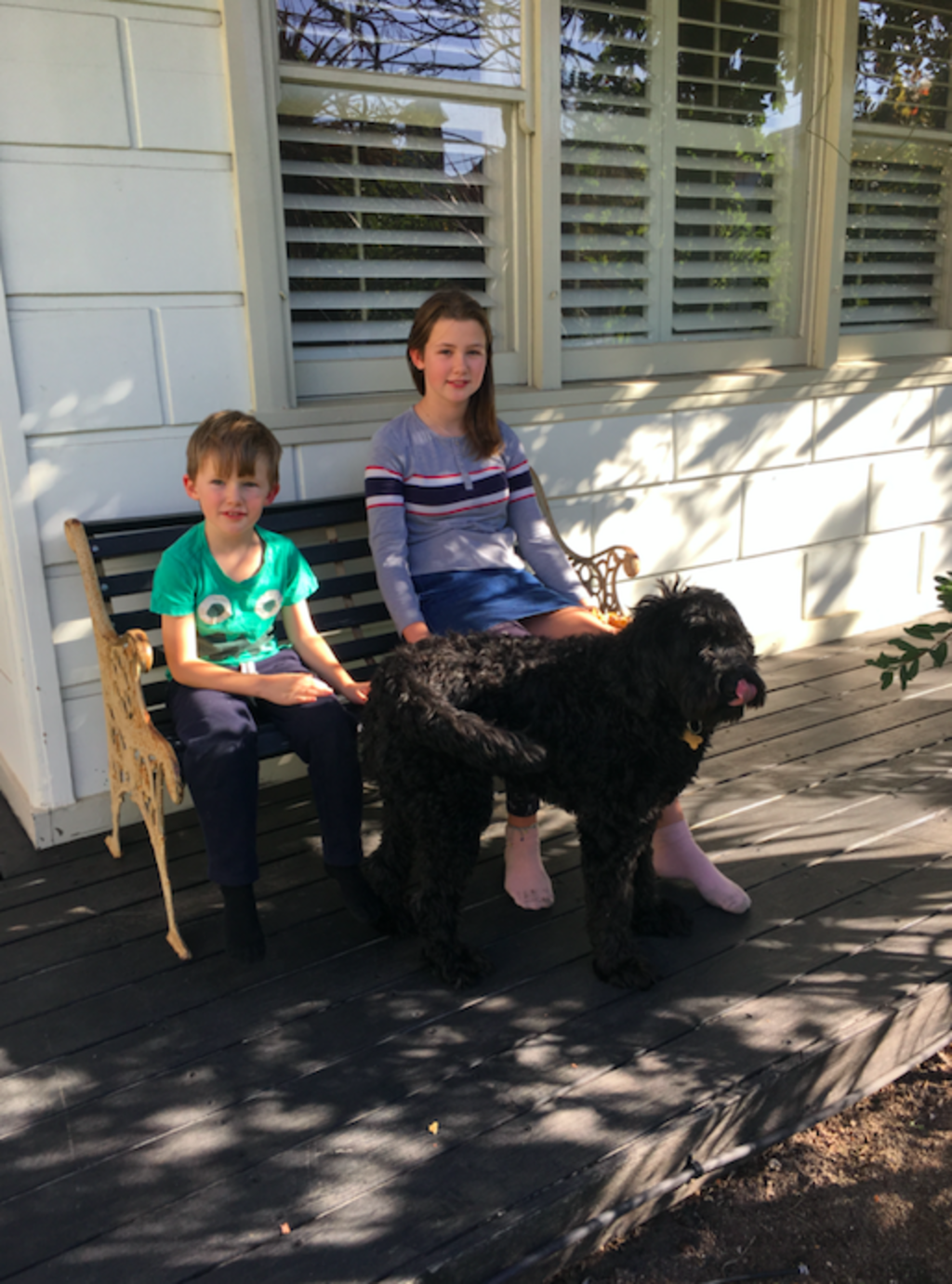
The porch is the real estate symbol of coronavirus. It keeps other people at a social arm’s length but offers a desperately rare insertion into civic life.
It’s not just us, either. Plenty of other people around the neighbourhood are doing the same thing. We’re part of this, they seem to be saying “let us share our isolation”.
Australians are a funny breed. The PR spin says we’re open and approachable but this national myth-making falls at the first hurdle.
The simple social visit is fast becoming a lost art. Woe betide any friend or acquaintance who knocks on the door without first announcing themselves through the technological tom-toms. Even a phone call is now a social misstep, replaced with the emoji-draped utilitarian baseness of the text message.
Our suburban dreaming is a private one. Australians have always based our algorithms on the backyard, and in the Before Times we lived largely hidden from public view.
Mrs Jessup from the iconic TV series The Sullivans was our social wariness made flesh and blood: a puritanical curtain-twitcher, always watching the world (and passing ruthless judgment on it) but rarely seen.
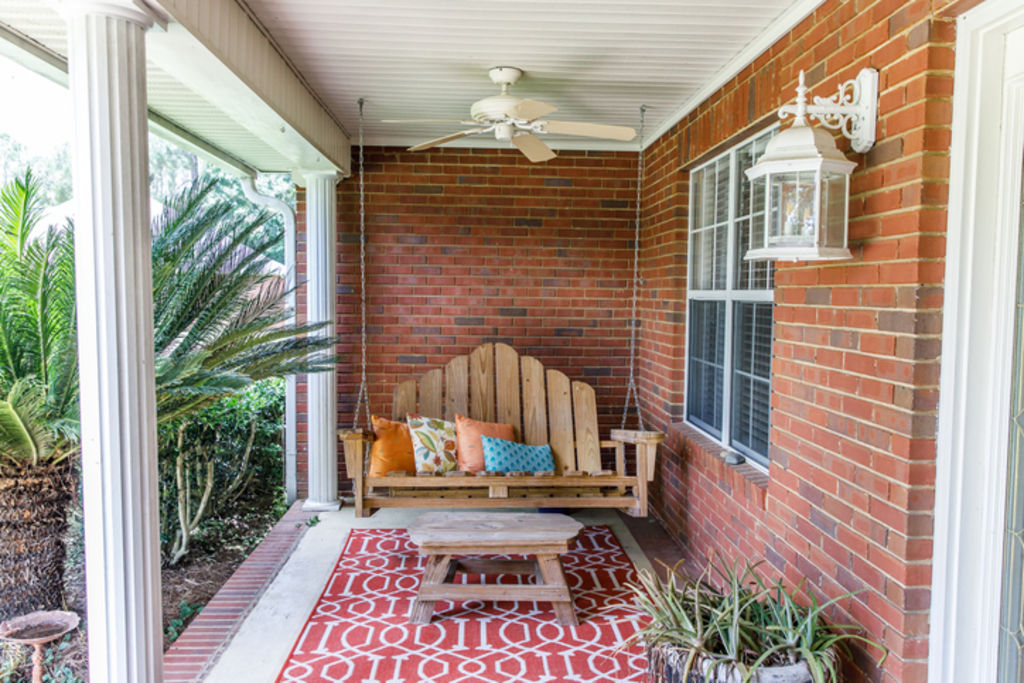
Then along comes coronavirus. To be fair to SARS-CoV-2, it’s only hastening a process that’s been stealthily chipping away at our national identity for some time. The traditional suburban backyard is being colonised by high-density housing and oversized developments on smaller lots.
Among its many reckonings, COVID-19 is making us evolve from a nation of curtain-twitchers to porch-dwellers.
The footage from overseas has shown not only the eerily empty streets of the world’s great capital cities, it has revealed national character. Who hasn’t been taken by the sight of the Italians, apartment dwellers to the max, singing from their street-facing balconies and lighting candles in solidarity with health workers and each other?
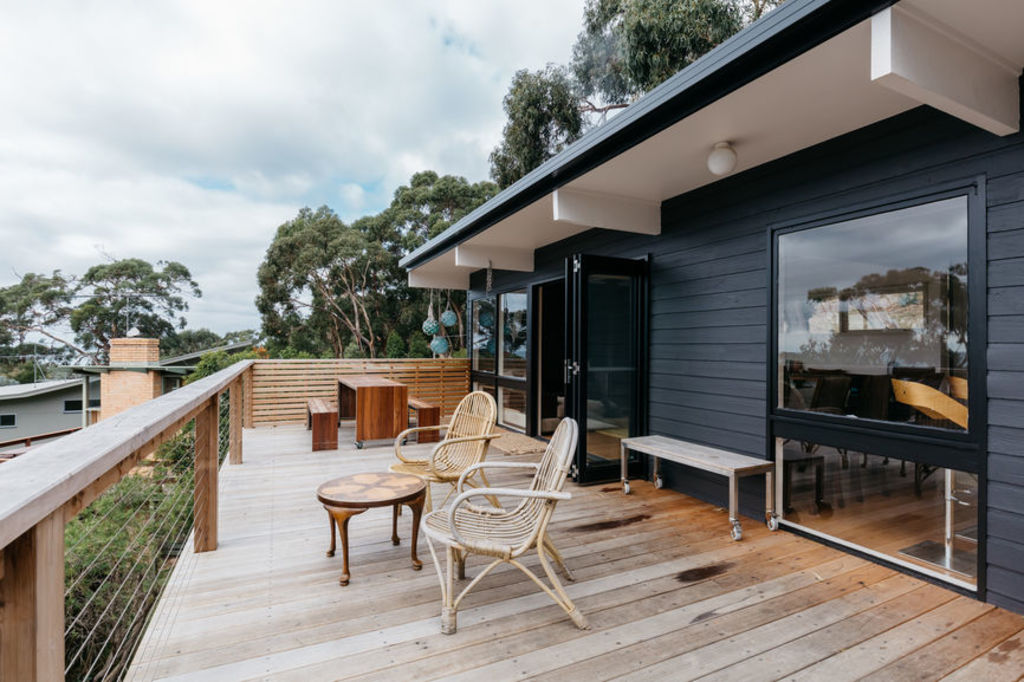
Americans have long mythologised their porches (head to certain parts of the country and they’ll call it a stoop, which makes me think that come summer I’ll get all Tennessee Williams and drink pitchers of iced tea on mine while dressed in a silk negligee).
Over the past month I’ve come to love the porch with a surprising intensity. All sorts of people pass by and smile. Last night a woman rode by and tinkled her bicycle bell in greeting. We didn’t know her, which in the past life was unthinkable, but now gives me a warm glow.
When this is all over I plan to become a champion of unannounced visits and unabashed hugs. I might even make telephone calls for no reason other than to chat. Until such a blessed time, I’ll be that person sitting on the porch, waving.
We recommend
We thought you might like
States
Capital Cities
Capital Cities - Rentals
Popular Areas
Allhomes
More

